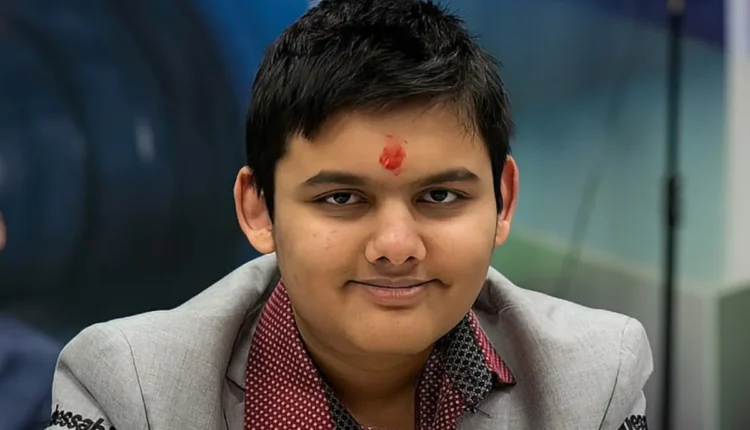Abhimanyu Mishra, born on February 5, 2009, has etched his name in the annals of chess history by becoming the youngest grandmaster ever. On June 30, 2021, at the tender age of 12 years, 4 months, and 25 days, he broke Sergey Karjakin’s long-standing record. Mishra’s meteoric rise in the chess world is a testament to his exceptional talent, relentless dedication, and unwavering passion for the game.
Early Achievements of Abhimanyu Mishra: A Record-Breaking Journey
From a young age, Abhimanyu Mishra demonstrated a profound understanding of chess, earning accolades and breaking records that would seem insurmountable to many.
At just 7 years, 6 months, and 22 days old, Abhimanyu Mishra became the youngest Expert in the United States Chess Federation, surpassing the record set by Awonder Liang. His journey continued with even more impressive feats; at 9 years, 2 months, and 17 days, he became the youngest National Master, breaking Liran Zhou’s record.
Mishra’s talent was not confined to national boundaries. In November 2019, he became the youngest International Master in history at the age of 10 years, 9 months, and 20 days, surpassing the record held by Rameshbabu Praggnanandhaa. FIDE officially awarded him the title in February 2020, further solidifying his status as a global chess prodigy.
The Road to Grandmaster
The path to becoming a grandmaster is a challenging one, requiring not only exceptional skill but also consistent high-level performance. To earn the grandmaster title, a player must achieve three GM norms and exceed a FIDE rating of 2500. Abhimanyu’s journey to this prestigious title was marked by a series of remarkable performances.
In March 2021, Abhimanyu Mishra tied for first place at the Charlotte Chess Center’s Spring 2021 GM Norm Invitational, showcasing his growing prowess. Although he didn’t achieve a GM norm at this event, it set the stage for future successes.
The breakthrough came in April 2021, when Abhimanyu Mishra earned his first GM norm at the Vezérképző GM tournament in Budapest, Hungary, with a stellar performance rating of 2603.
Mishra’s momentum continued in May 2021, as he clinched his second GM norm at the First Saturday GM tournament in Budapest with an impressive performance rating of 2739.
His third and final GM norm came in June 2021 at the Vezérképző GM Mix tournament, where he once again displayed his extraordinary talent. With a performance rating of 2619 and his FIDE rating crossing the 2500 mark, Mishra officially became the youngest grandmaster in history.
Recognition and Challenges
Abhimanyu Mishra’s achievement garnered widespread acclaim from the chess community. Former record holder Sergey Karjakin and then-World Champion Magnus Carlsen were among those who congratulated him.
However, his record-breaking feat also sparked discussions about the GM qualification structure. Critics like Nigel Short and Bruce Pandolfini raised concerns about the nature of norm tournaments, suggesting that some were designed to be less challenging to facilitate easier achievement of norms.
This criticism led to FIDE updating the rules in 2022 to ensure a more rigorous and standardized norm qualification process.
Continuing Success and Future Prospects
Following his grandmaster title, Abhimanyu Mishra continued to impress in various tournaments. He participated in the 2021 Chess World Cup and, although he lost to Baadur Jobava in the first round, his presence at such a prestigious event at a young age was noteworthy. In 2022, he won the St. Louis Spring Chess Classic B with a remarkable score of 7/9 and a tournament performance rating of 2739.
The following year, Abhimanyu Mishra placed second in the 2023 TePe Sigeman & Co tournament with a performance rating of 2742, further solidifying his status as a rising star in the chess world.
His victory at the 2023 USA Junior Championship qualified him to compete in the US Championship proper, where he tied for second place and achieved a rating of 2600. His consistent performances culminated in the FIDE Grand Swiss, where he reached a personal best rating of 2627.
Also Read:Faiza Shaheen: Championing Economic Equality and Social Justice

